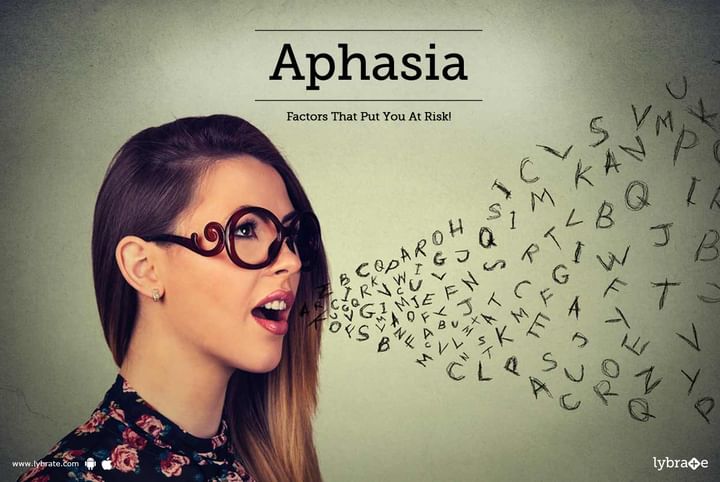Aphasia - Factors That Put You At Risk!
Aphasia is a communication disability that can result from damage or injury to those parts of the brain that process language. It can happen due to stroke, brain tumors, accidents, or brain infection. A brain injury which damages parts of the brain that deal with language can also bring on Aphasia. Aphasia can also be caused by dementia such as Alzheimer’s disease. Aphasia is sometimes also a symptom of epilepsy or other neurological disorders.
It’s more common in older adults, especially after a stroke. What happens in Aphasia is that the affected person is unable to understand or use words. He or she may also:
- Have difficulty speaking and finding the "right" words to express themselves verbally
- Have problems understanding conversation
- Have problems reading and comprehending written words
- Have problems writing words
- Is unable to calculate or use numbers
- Has a tendency to use gibberish words as a part of speech
There are various types of Aphasia, differing in certain important ways from each other.
Aphasia can also be mild or severe. With mild Aphasia, the patient is able to converse, though he may not be able to find the right word or may not understand complex conversations.
However, in severe Aphasia, a person may lose his ability to communicate completely which means he can’t speak or understand any conversation and may also not be able to read or write.
Three things that aid Aphasia recovery are
- Speech Therapy
- Family Support
- Persistence
Treatment for Aphasia depends on factors like:
- Age
- Cause of brain injury which causes Aphasia
- Type of Aphasia
- Position and size of the brain lesion causing Aphasia
- If the Aphasia is due to a brain tumor, surgery to remove the tumor affecting the language centre can treat Aphasia.
- For a person who’s got Aphasia due to a stroke, sessions with a speech-language specialist are very effective. The therapist teaches the patient ways to communicate using stuff that doesn’t involve speech.
He uses the following to help the patient communicate without words:
- Props
- Drawings and pictures
- Teaching patient to speak slowly and be calm when talking.
Treatment techniques
The speech therapist uses these two main techniques to tackle Aphasia:
- Substitute skill model: This uses a prop like a writing board to help with spoken language.
- Direct treatment model: This approach uses specific exercises to help patients
- Copy and recall therapy (CART): This approach uses repetition and recall of certain words during speech therapy.
- Visual communication therapy (VIC): This involves the use of index cards to represent various components of speech.
In addition, Aphasia patients are also trained in the use of hand gestures to aid in communication as a part of ‘Visual Action Therapy (VAT)’.
brain tumor surgery. In case you have a concern or query you can always consult an expert & get answers to your questions!



+1.svg)
